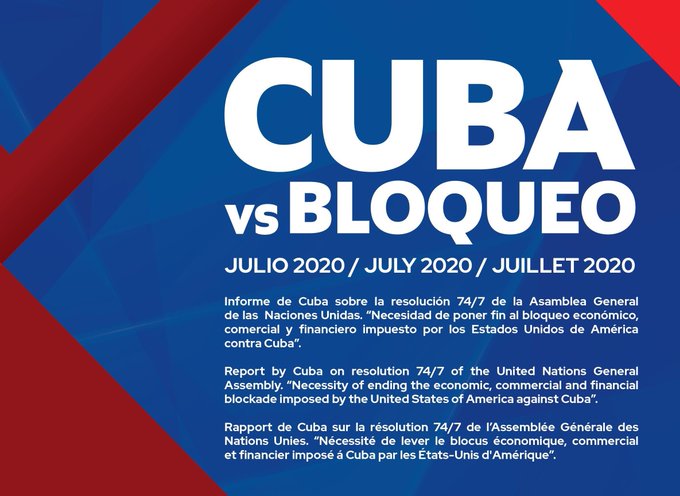
23 October 2020 | For: Ministry of Foreign Relations of Cuba
The economic damages and losses caused by the blockade of the communications and computing sector, including telecommunications in Cuba during the period from April 2019 to March 2020, are estimated at 64 million 274 thousand 42 dollars.
As in previous years, Empresa de Telecomunicaciones de Cuba S.A. (ETECSA) continues to be the entity with the greatest losses, registering approximately 97 percent of the total amount.
The blockade constitutes the main impediment to a better flow of information and a wider access to the Internet and information and communication technologies (ICT) by Cubans. By making connectivity more difficult and more expensive in the country, conditioning access to platforms and technologies, and using cyberspace to try to subvert the Cuban political and legal system, this policy negatively affects the development of communications in Cuba.
Among the effects registered in this area, the following stand out:
ETECSA cannot carry out interconnections with international operators directly in the United States, where the main interconnection nodes are located, so it is obliged to extend the international network with nodes in the United Kingdom, Jamaica and Venezuela. This leads to additional expenses of about 10 million 637 thousand 200 dollars.
As a consequence of the activation of Title III of the Helms-Burton Act, the AMERICAN AIRLINES company decided to suspend the direct postal service between the US and Cuba. As a result, the Grupo Empresarial Correos de Cuba (GECC) had to find an alternative to guarantee the Universal Postal Service in the national territory and decided to direct it through Panama, as an intermediary country. This action increased the price of the rates, which represented losses for the Cuban postal operator of 6 thousand 736 dollars.
On September 11, 2019, while the President of the Republic of Cuba, Miguel Díaz-Canel Bermúdez, reported on the causes of the difficult energy situation that the country was going through, the social network Twitter blocked the official accounts of some of the main media news of the Island: Roundtable, Cubadebate, Granma, as well as that of the Ministry of Communications and other Cuban press and journalists. The main objective of this action was to prevent the dissemination of the President's message on this digital platform and to prevent pronouncements and debates on the subject by users.
To the effects of the blockade in the communications sector, in the context of the COVID-19 pandemic, it has been added that Cuban representatives have faced numerous difficulties in participating in meetings and other virtual events convened by organizations of the United Nations System , given that Cuba has restricted access to several of the digital platforms that are used for these purposes, such as Zoom and Microsoft Teams.